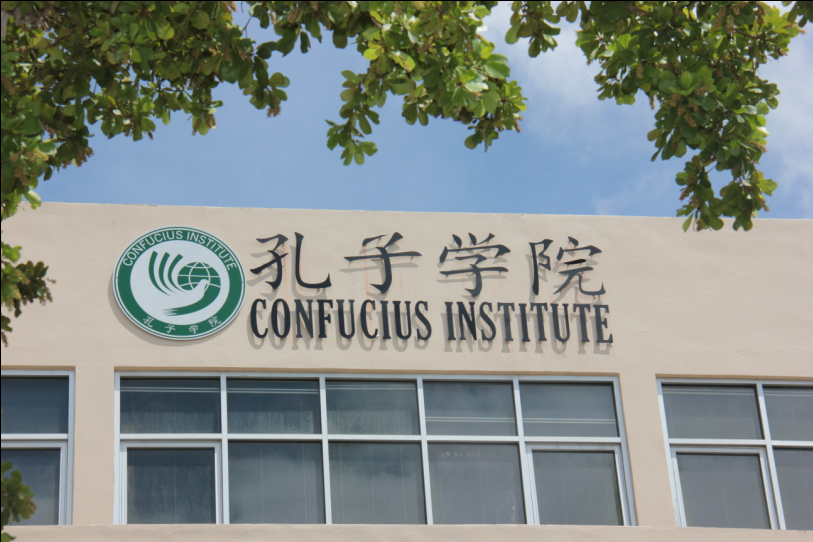|
Listen to article
Getting your Trinity Audio player ready...
|

Confucius Institutes (孔子学院 Kǒngzǐ Xuéyuàn): Beijing’s Trojan Horse?
Earlier this year, during the British Prime Minister’s election campaign, Rishi Sunak called China the ‘largest threat’ to Britain and to ‘the world’s security and prosperity’, highlighting that he would close all 30 Chinese Confucius Institutes in the United Kingdom. More recently, a group of cross-party Members of Parliament is in consultation with Taiwan for exploring the possibility of providing Mandarin teachers to the UK.
Be it the British Council of the UK, Alliance Française of France or Indian Council for Cultural Relations of India, these institutes play a significant role in promoting cultural exchange with the ultimate goal of developing relations with countries all across the globe.
As for China, the first Confucius Institute was established in 2004 in Seoul, South Korea and as of 2022, there are around 530 centers all across the globe. The institutes work for the promotion of Chinese culture and train teachers and students in the Mandarin language. However, unlike the others, these Confucius Institutes are widely criticised as China’s Trojan Horse due to allegations concerning academic censorship and spying. Apart from this, another controversial factor about the Confucius Institutes is that they promote the People’s Republic of China’s agenda through guest talks wherein speakers are often sympathetic to the PRC though clearly, that is also a feature of all institutions dedicated to promoting their respective home countries abroad.
Against this backdrop, two years ago, in 2020, some of the Confucius Centres were shut down, especially in the United States, France, Sweden and Netherlands. In fact, in the year 2020, the State Department of the United States declared the Confucius Institute U.S. Center (CIUS) a foreign mission of the government of China and called it “an entity advancing Beijing’s global propaganda and ‘malign’ influence campaign”.
A new dawn of Taiwan-UK bilateral relations?
Following the United States, the United Kingdom is also aiming to phase out the People’s Republic of China’s Confucius Institutes. To this end, as mentioned earlier Members of the British Parliament are currently exploring the prospect of Mandarin teachers from Taiwan being brought to the UK as an alternative.
This move comes after an alarming decline in the number of British officers proficient in Chinese was noted in the foreign office. Some reports have suggested that on average, only 14 officials are being trained annually.
It is interesting to mention that in the year 2020, in the United States, a programme was launched under the name of ‘Taiwan in the World’ providing an alternative to the China-based Mandarin language learning programme. In Germany, several universities have discontinued cooperation with China leading to the closing of some Confucius Institutes.
Consequently, the Republic of China’s Taiwan Center for Mandarin Learning (TCML) is rapidly extending its presence worldwide. Currently, there are about 43 operational TCML centers in the world. Therefore, considering the growing suspicions about the Confucius Institutes and their activities, TCML seems to gain more attention in the UK.
Though like most other countries, the United Kingdom does not officially recognise Taiwan, it has a strong unofficial relationship with the island. Interestingly, according to an MoU signed between the UK and Taiwan, the British Council and the Ministry of Education support Taiwan’s ambition to become a bilingual society in Mandarin and English by 2030.
Currently, the diplomatic presence of the UK on the island nation is marked by an outpost called ‘British Office Taipei’. While collaborating for Mandarin-English language education and training, the UK and Taiwan have an active trade relationship. Furthermore, it is pertinent to mention that in view of the United Kingdom’s ‘tilt to the Indo-Pacific’ region and its official description of China as a ‘systematic competitor’, there is also a great possibility of the UK’s defence and foreign policy impacting Taiwan and the Indo-Pacific region.
The future of Confucius Institutes
In Mandarin, the word ‘crisis’ is composed of two characters with one denoting danger and the other an opportunity. Hence, as it is rightly said, ‘every crisis is an opportunity,’ the decline in the number of Confucius Institutes has proved advantageous for Taiwan to establish its cultural ties with countries worldwide.
Apart from signing an MoU with the US in 2020, Taiwan has also established a few centers in Austria, Germany, France, the UK, Hungary, Ireland and Sweden. Besides, the propaganda of Confucius Institutes, the Chinese government’s human rights violations, economic coercion, controversial handling of the Covid-19 pandemic and discriminatory trade measures have led to a slight deterioration in EU-China relations.
While Beijing is rebranding its Confucius Institutes to project its soft power by establishing cultural ties with less emphasis on political ideology, the growing misgivings about its activities and goals lead to a tilt in many countries toward Taiwan’s TCML, probably indicating an upcoming shift in the realm of cultural diplomacy despite many uncertainties about the future political identity of Taiwan.






Add comment